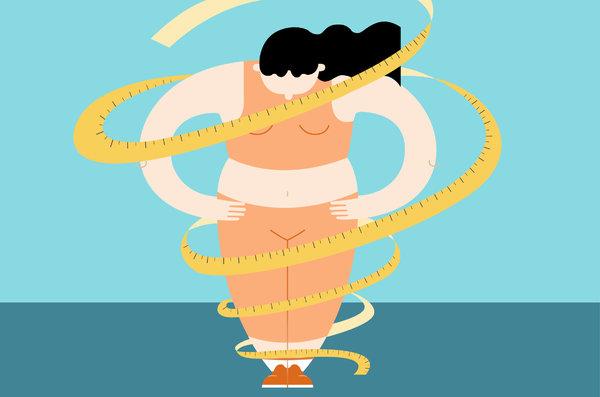A hallmark of PCOS is elevated testosterone levels. This male hormone in too high levels in females like extreme obese women can cause things like facial hair growth, excessive hair growth in places like the face, stomach and back, and problems with the reproductive cycle.
Extreme obese women are putting their health and their lives at risk by remaining heavy. While obesity affects both sexes and can ruin the health of women and men, extreme obese women face some special health challenges that men don’t have to worry about.
While doctors say that PCOS can’t be prevented, eating healthy, getting regular exercise and not smoking are the recommended treatments for the condition. It stands to reason that if you practice these things already, even if you’re pre-disposed to developing the condition you may never suffer symptoms of the disease.
It can even occur in young girls who are just entering puberty, but generally doesn’t unless they’re overweight. Serious reproductive problems can result when it occurs very young.
PCOS can strike any girl, even teenagers, but those who eat poor diets, don’t exercise, and smoke are at a greater risk. For extreme obese women, it’s almost not a matter of whether or not they’ll get PCOS but when.
PCOS causes weight gain and can make it very difficult for extreme obese women or any women to lose weight. Acne flare-ups are often a sign of PCOS too, because high levels of testosterone are linked with acne break outs.
Because it’s related to their reproductive system is PCOS, one condition that only extreme obese women will face. Polycystic Ovary Syndrome can occur in any woman, overweight or not, but it’s much more common among obese and overweight women.
While a person can be insulin resistant and not have PCOS, if a person develops the condition it’s generally because they’re insulin essentially pre-diabetic and resistant. PCOS causes small cysts to grow on the ovaries. When too much testosterone is present in a woman’s body, menstrual periods can be delayed, irregular and either very light or very heavy. PCOS can affect the reproductive cycle so much that it can be impossible or difficult for a woman to get pregnant.
Another symptom of PCOS is depression. While being obese can also contribute to depression, the hormone changes and fluctuations caused by PCOS can directly contribute to feelings of sadness and depression, too.
PCOS is a condition that can go hand in hand with insulin resistance. When a person is overweight and/or eating a diet rich in simple carbs that are absorbed quickly into the bloodstream, insulin resistance can occur pretty easily.
While a person can be insulin resistant and not have PCOS, if a person develops the condition it’s generally because they’re insulin essentially pre-diabetic and resistant. PCOS causes small cysts to grow on the ovaries. While the cysts themselves aren’t harmful, they cause hormone imbalances that lead to other problems.
When too much testosterone is present in a woman’s body, menstrual periods can be delayed, irregular and either very light or very heavy. In some cases, periods can stop altogether. PCOS can affect the reproductive cycle so much that it can be impossible or difficult for a woman to get pregnant.
When the body’s insulin production is no longer enough to remove the blood sugar from the blood stream, this is. Because of the large amounts that have been released by necessity over a period of time, the body has become insulin resistant.







